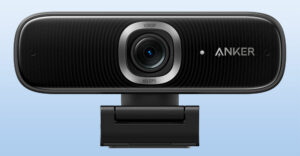
Microsoft on Wednesday announced new intellectual property licensing initiatives for its mouse and keyboard technologies. The hardware licensing initiative is a first for the software giant.
The initiatives make Microsoft technologies, including U2 interface detection and switching technology, Tilt Wheel and Magnifier tool, broadly available to third-party brands and hardware manufacturers in the mobile and desktop peripherals industry.
By expanding its IP licensing to address increased market demand within the consumer electronics industry, Microsoft said it is encouraging shared success by opening revenue-generating opportunities for its partners.
“Most people think of Microsoft as solely a software company, but we’ve been a leading hardware innovator and supplier to the desktop peripherals industry for over 20 years,” said Robbie Bach, president of the Entertainment and Devices Division at Microsoft.
Understanding U2 Technology
Microsoft is making three technologies available through its first-ever hardware licensing initiative. First, U2 technology enables a computer peripheral device, such as a mouse or keyboard, to be connected to a computer using either a PS2 or USB auto-sensing interface. This offers advantages for both consumers and manufacturers, according to Microsoft.
The major advantage for users is that U2 technology makes keyboards or mice smart enough to figure out the type of connection the PC requires without user input. On the manufacturing, Microsoft said U2 technology is a major benefit because its auto-sensing technology allows distributors to supply a single stock-keeping unit (SKU) to address either PS2 or USB connectivity versus multiple SKU code to address connectivity options.
Microsoft’s Advantage
For Microsoft, the advantages are clear, said Sarang Ghatpande, vice president and senior analyst at Ideas International: Microsoft gets a greater return on the money it has invested in hardware research and development.
“Licensing IP can be an attractive revenue stream and a very profitable one at that, especially for companies that have a rich IP portfolio such as Microsoft,” Ghatpande told TechNewsWorld. “Microsoft can look at its portfolio and see where it makes sense to license some of these technologies. Where Microsoft can get a broader reach by licensing some of these technologies, it will go ahead and do that.”
Gaining a Broader Reach
Microsoft may get a broader reach by licensing its Tilt Wheel technology, a hardware component of mice and optional keyboard offerings that allows users to tilt the component from side to side and up and down to maneuver the cursor. Microsoft figures the ability to scroll smoothly may be especially beneficial for navigating worksheets and documents that span beyond the screen view.
“Microsoft has been offering a keyboard and mouse for a long time with the company logo, but people may not be familiar with it. More people may be aware of these technologies through licensing than they otherwise would have,” Ghatpande said.
Since Microsoft’s key business is not hardware, there is little danger of the company cannibalizing its own mouse and keyboard sales. Instead, it could wind up generating a significant new and recurring revenue stream like IBM has enjoyed with its IP licensing initiatives, which bring in millions of dollars each year.
Magnifying Profits
Microsoft would no doubt like to magnify its hardware profits. It has the potential to do that by licensing technologies like the Magnifier, a viewing and editing tool used with input devices such as a mouse. The Magnifier offers consumers an affect similar to holding a magnifying glass up to a computer screen.
Licensing is a key element in Microsoft’s business practices because it helps defray the costs of bringing leading-edge products to market by offsetting some of its investments in research and development, the company said.
What IP Microsoft may license next is anyone’s guess, but analysts expect the company to continue leveraging the strategy moving forward. “The hardware IP initiative is definitely a good step forward for consumers,” Ghatpande said. “I think it will get the ball rolling to see what else Microsoft may do in terms of licensing IP.”





















































